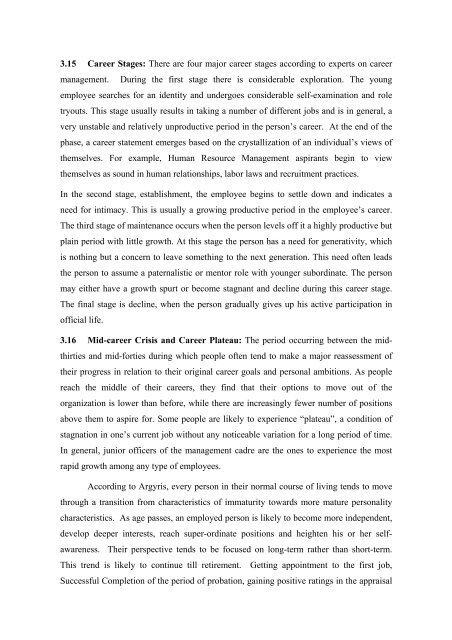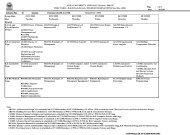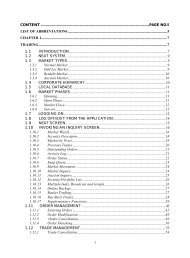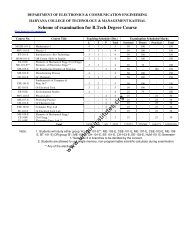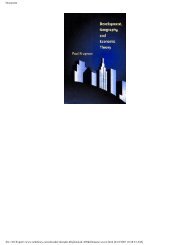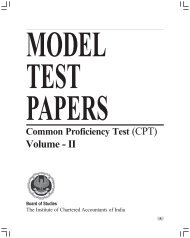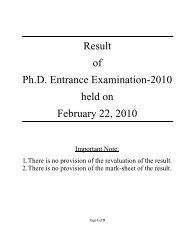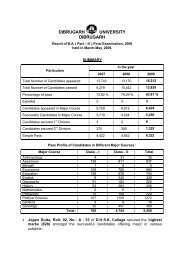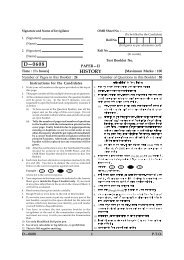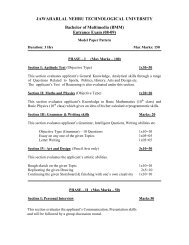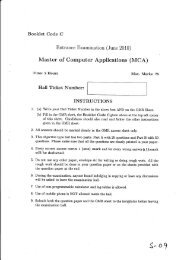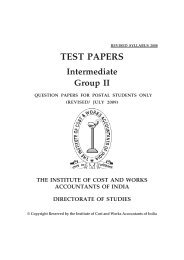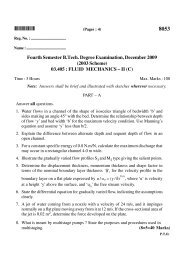UNIT – I Lesson 1 HRM – AN OVERVIEW Lesson Outline Nature of ...
UNIT – I Lesson 1 HRM – AN OVERVIEW Lesson Outline Nature of ...
UNIT – I Lesson 1 HRM – AN OVERVIEW Lesson Outline Nature of ...
You also want an ePaper? Increase the reach of your titles
YUMPU automatically turns print PDFs into web optimized ePapers that Google loves.
3.15 Career Stages: There are four major career stages according to experts on career<br />
management. During the first stage there is considerable exploration. The young<br />
employee searches for an identity and undergoes considerable self-examination and role<br />
tryouts. This stage usually results in taking a number <strong>of</strong> different jobs and is in general, a<br />
very unstable and relatively unproductive period in the person’s career. At the end <strong>of</strong> the<br />
phase, a career statement emerges based on the crystallization <strong>of</strong> an individual’s views <strong>of</strong><br />
themselves. For example, Human Resource Management aspirants begin to view<br />
themselves as sound in human relationships, labor laws and recruitment practices.<br />
In the second stage, establishment, the employee begins to settle down and indicates a<br />
need for intimacy. This is usually a growing productive period in the employee’s career.<br />
The third stage <strong>of</strong> maintenance occurs when the person levels <strong>of</strong>f it a highly productive but<br />
plain period with little growth. At this stage the person has a need for generativity, which<br />
is nothing but a concern to leave something to the next generation. This need <strong>of</strong>ten leads<br />
the person to assume a paternalistic or mentor role with younger subordinate. The person<br />
may either have a growth spurt or become stagnant and decline during this career stage.<br />
The final stage is decline, when the person gradually gives up his active participation in<br />
<strong>of</strong>ficial life.<br />
3.16 Mid-career Crisis and Career Plateau: The period occurring between the midthirties<br />
and mid-forties during which people <strong>of</strong>ten tend to make a major reassessment <strong>of</strong><br />
their progress in relation to their original career goals and personal ambitions. As people<br />
reach the middle <strong>of</strong> their careers, they find that their options to move out <strong>of</strong> the<br />
organization is lower than before, while there are increasingly fewer number <strong>of</strong> positions<br />
above them to aspire for. Some people are likely to experience “plateau”, a condition <strong>of</strong><br />
stagnation in one’s current job without any noticeable variation for a long period <strong>of</strong> time.<br />
In general, junior <strong>of</strong>ficers <strong>of</strong> the management cadre are the ones to experience the most<br />
rapid growth among any type <strong>of</strong> employees.<br />
According to Argyris, every person in their normal course <strong>of</strong> living tends to move<br />
through a transition from characteristics <strong>of</strong> immaturity towards more mature personality<br />
characteristics. As age passes, an employed person is likely to become more independent,<br />
develop deeper interests, reach super-ordinate positions and heighten his or her selfawareness.<br />
Their perspective tends to be focused on long-term rather than short-term.<br />
This trend is likely to continue till retirement. Getting appointment to the first job,<br />
Successful Completion <strong>of</strong> the period <strong>of</strong> probation, gaining positive ratings in the appraisal


